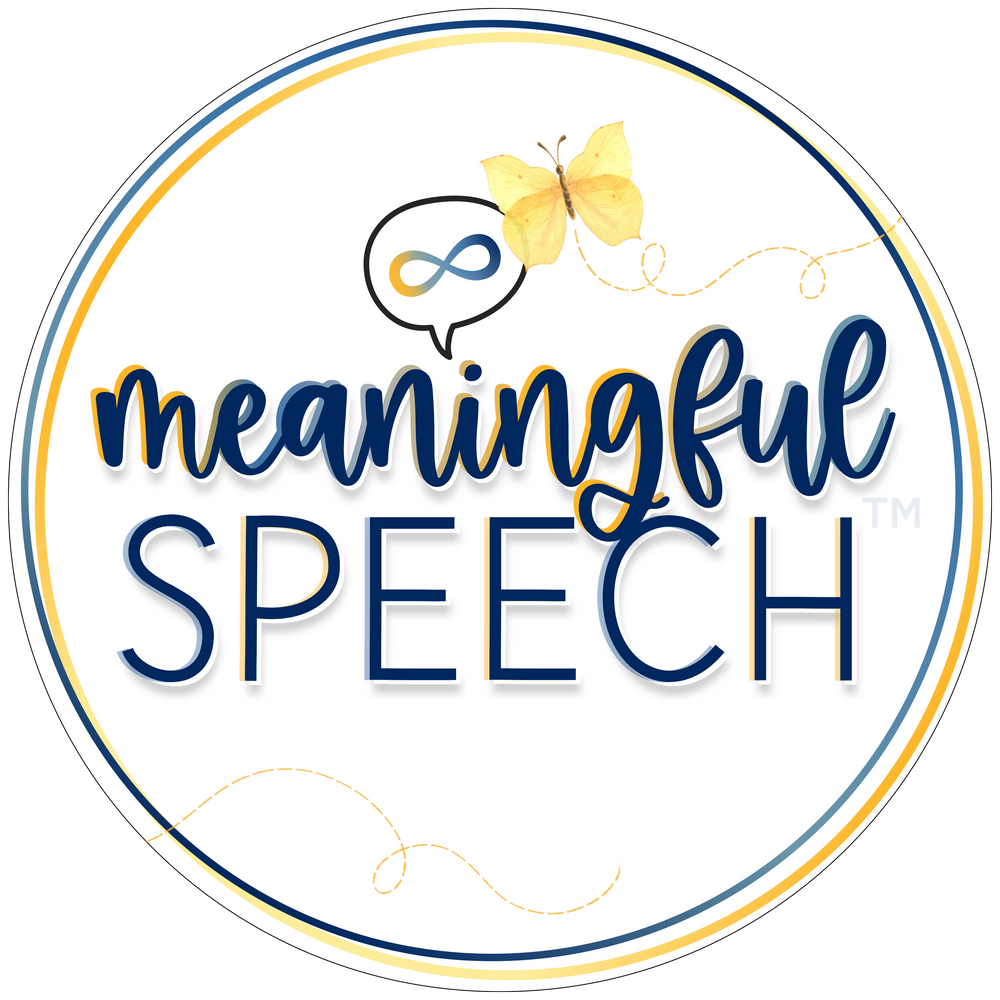Supporting language development: It's not one size fits all!
Sep 03, 2025
When it comes to language development, how we support a child matters just as much as what we do. Different types of language processing require different language support and using strategies that are not supportive of how a child develops language may hold the child back in their language development.
If a child is a gestalt language processor but we only use analytic language strategies, we risk keeping them stuck in the early stages of their development. On the other hand, if we use gestalt language strategies with an analytic language processor, they’ll typically take what they need and continue moving forward. That's why understanding the way a child processes language is key to giving them the support they need.
What’s Typically Recommended for Analytic Language Processors?
Analytic processors develop language one word at a time, gradually combining them into phrases and sentences. Common strategiesinclude:
- Labeling nouns (e.g., naming objects in books or on flashcards to increase vocabulary)
- Expanding utterances (e.g., if a child says “car,” you say “red car”)
- Cloze phrases (e.g., “The wheels on the… [pause]” encouraging them to say “bus”)
- Asking wh- questions like “What’s that?”
- Focusing on grammar early on
What About Gestalt Language Processors?
Gestalt processors don’t learn language word-by-word. Instead, they process larger chunks of language or “gestalts” that carry emotional or contextual meaning (e.g. movie quotes or familiar phrases).
For early-stage gestalt language processors, it’s important to:
- Model potential gestalts that are easily mitigable (mix and match or trim down) and meaningful to the child.
- Avoid focusing on single words, grammar, or expanding utterances (those are analytic-focused strategies)
- Acknowledge all communication by repeating, a nod, smile, or saying “yeah” or "okay"
- Use natural, declarative language during play (commenting and narrating rather than quizzing or prompting)
- Look beneath the surface of gestalts to understand what the child may be trying to communicate. They’re often not literal (but sometimes they are!)
Not Sure How a Child Processes Language Yet?
That’s okay! When you’re unsure whether a child is an analytic or gestalt processor, use strategies that support all learners:
- Let the child lead play and interactions
- Skip reward systems and sensory breaks. Instead, incorporate sensory preferences and special interests into sessions and activities
- Model language without demands or expectations (no “say ___” prompts!)
- Use music and singing to support early language
- Provide parent coaching so caregivers can feel confident supporting their child
- Consider robust AAC if the child may benefit
- Honor all forms of communication such as gestures, AAC, spoken, vocalizations, etc.
These are universal, affirming strategies that support communication and connection for all children, regardless of their language processing.
What Changes Might You See When You Shift Your Approach?
If you’ve been using analytic strategies with a gestalt language processor and recently made the switch, here’s what you might notice:
- An increase in gestalts: This is a great sign! Just like analytic processors need more single words, early-stage gestalt processors need more gestalts.
- A period of quiet: Your child may speak less when you stop prompting or questioning. That’s okay, they’re observing and taking it all in. Give it time.
- More natural eye contact or smiles: You’re building trust. This often happens organically when a child feels seen and safe (and no, we’re not targeting eye contact… it just often happens!).
- A transformation in communication: When we stop teaching and start listening, everything changes. You might see joy, confidence, and spontaneous language.
2025 UK Gestalt Language Processors Conference
I'm presenting at the 2025 UK Gestalt Language Processors Conference happening virtually on October 9, 10, 13, & 14 starting at 9:30 AM GMT. This event brings together international experts to share insights, strategies, and practical tools for supporting gestalt language processors.
This year, I’ll be presenting two sessions:
✨ Intro to GLP, the stages and child-led therapy
✨ Prompt-Free Pathways: Helping GLPs Lead the Way
✨ Where to Next? Questions and Reflections with Marge Blanc and Cathy Shilling
Whether you’re an SLP/SLT, educator, or parent, this conference is packed with practical information to help you better understand and support GLPs. Learn more about the conference HERE.
Want to dive deeper into supporting gestalt language processors?
There are so many ways to keep learning and growing as a parent or professional:
- There are many free podcasts, webinars and articles to get you started. A comprehensive list of resources can also be found on our website. We now have a FREE masterclass on echolalia and child-led therapy and a Beginner's Guide to AAC & Gestalt Language Processing that are perfect for anyone starting their learning journey or on the fence about purchasing our courses!
- Meaningful Speech Course or AAC + Gestalt Language Processing Course: Deepen your understanding of gestalt language processing and learn strategies to support gestalt language development with one of our self-paced courses or webinars.
- SLP Registry: Find speech-language pathologists experienced in supporting gestalt language processors and child-led therapy.
- Free Webinars and Articles: Access free information to further your own knowledge or get free resources you can share with others.
